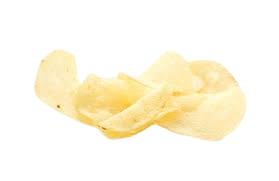Konjac Chips
Konjac chips are thin, dried slices of the konjac tuber, yellowish-white in color, hard and lightweight in texture, used as the primary raw material for making glucomannan flour or as food ingredients in the health industry.
Regarding Of Konjac Chips
Konjac chips are made from 100% konjac root. We have two types of chips with different processing in modern technology, namely manual oven chips (Using a regular rack oven, such as a wood oven/manual electric oven). and conveyor oven chips Using an oven with a conveyor belt running automatically through the heating chamber.
Konjac Chips Manual Oven
Using a regular rack oven (such as a wood oven/manual electric oven). by Process: The operator puts the konjac slices onto a rack or baking sheet. Rotate or turn it manually to evenly dry it.
| Spesifications | Manual Oven |
|---|---|
| Konjac Root | 100% |
| Raw Material | Konjac tubers grade A/B |
| Drying Method | Static oven (manual rack / wood oven / electric) |
| Ukuran Irisan | 1–3 mm |
| Product Color | Yellowish white to light gray |
| Texture | Dry, hard, slightly variable |
| Water content (%) | ±10–12% |
| Glucomannan Levels | 50–65% |
| Standard Packaging | Woven sack / PE bag 25 kg with inner liner |
| Minimum Order | 25 ton |
Konjac Chips Conveyor Oven
Using an oven with a conveyor belt running automatically through the heating chamber. Process: Konjac slices go in from one end, come out dry at the other end. Conveyor temperature and speed can be adjusted automatically.
| Spesifications | Manual Oven |
|---|---|
| Konjac Root | 100% |
| Raw Material | Grade A konjac tubers, the best choice |
| Drying Method | Automatic temperature controlled conveyor oven |
| Ukuran Irisan | 1.5–2 mm |
| Product Color | Bright white to evenly yellowish |
| Texture | Very dry, hard, uniform |
| Water content (%) | ±8–10% (more stable for long term storage) |
| Glucomannan Levels | 60–70% (more stable and maintained) |
| Standard Packaging | Woven sack / PE bag 50 kg with inner liner |
| Minimum Order | 25 ton |
PRODUCT APPLICATION
Konjac chips are not used directly for final consumption, but rather as the main raw material to be extracted into glucomannan (highly soluble fiber). After being extracted or processed, the derivative products are used in various industries.


______________________________________________________________________________
Contact Us
- +(62)81389328100 (Marketing 1)
- +(62)81915011324 (Marketing 2)
- gf_indonesia13
- gfi@goodfarmerindo.com

